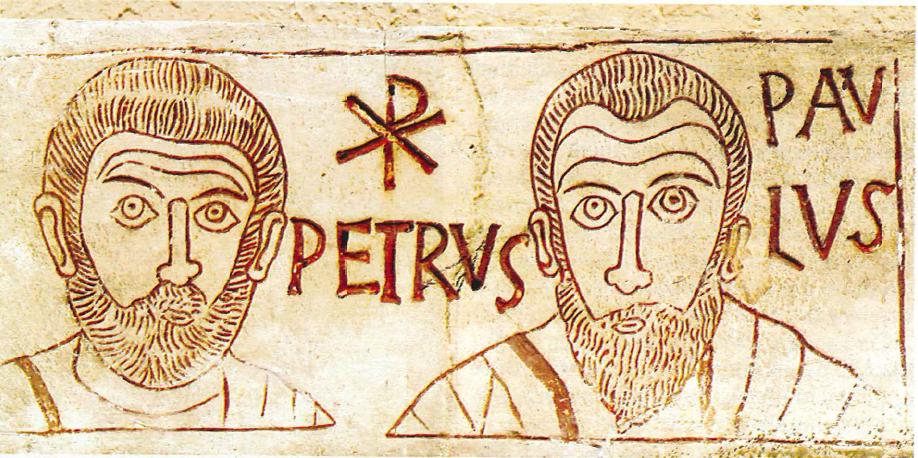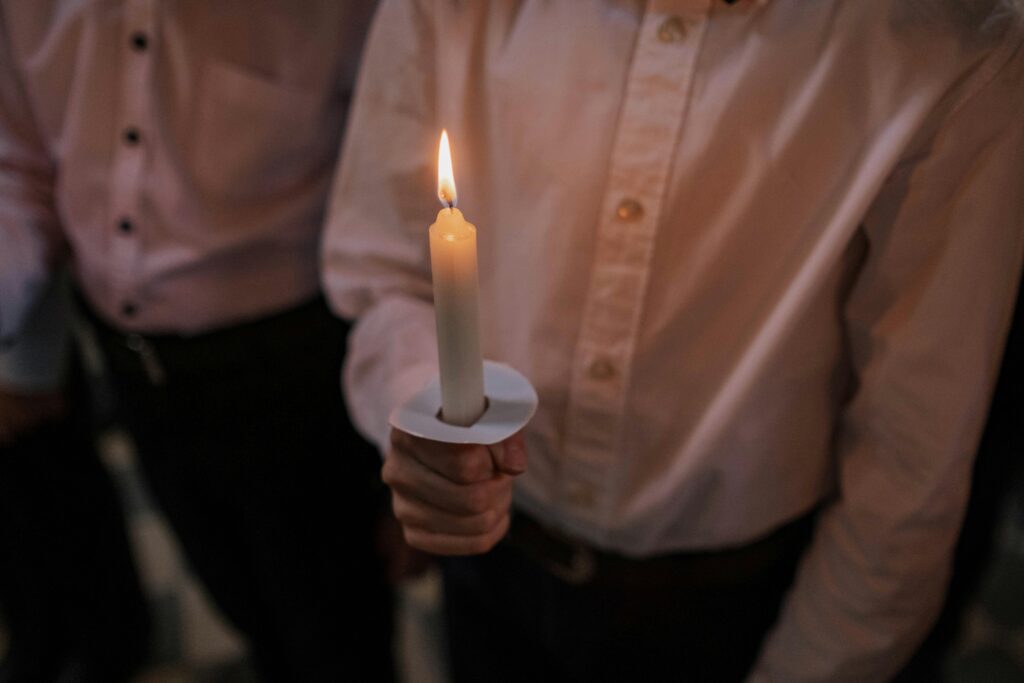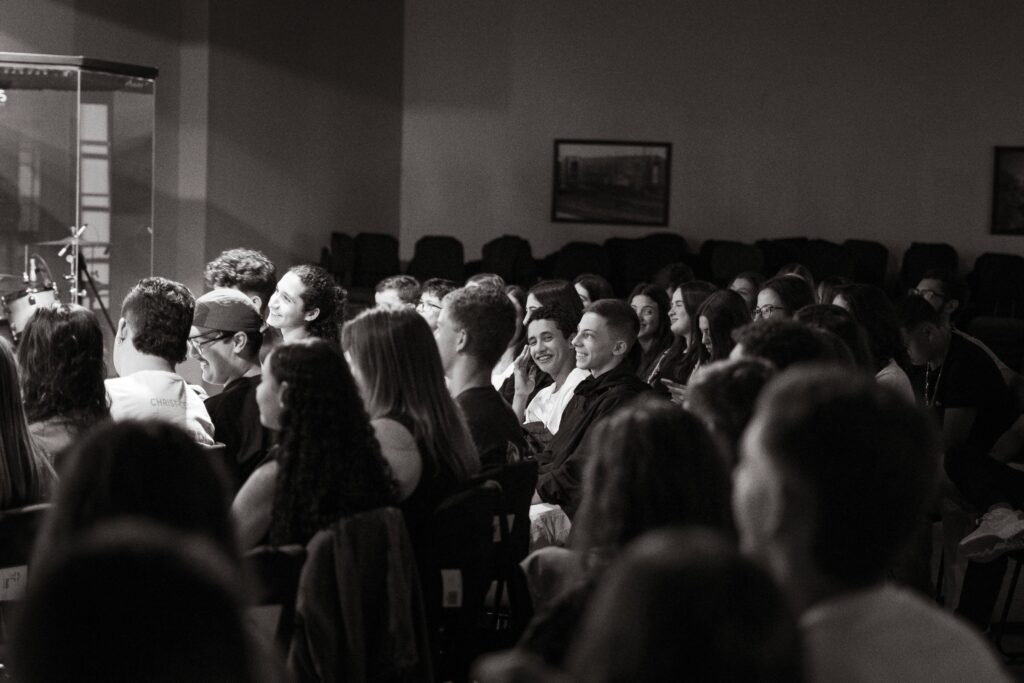The Pope solves an important ecclesial paradox
Opus Dei in the service of the transformation of Dioceses into “Particular Churches”

The article “Charism and hierarchy in Saint Paul” has prompted a number of interesting comments for which I express my thanks. This comments have led me to become aware of something whose relevance I had not grasped till now: the ecclesiological innovation that the council Vatican II fulfills by declaring that the Dioceses are “particular Churches”. In this short essay I would like to show that this innovation contains an ecclesial renewal of large scope, and how the Pope’s decisions regarding the personal Prelature of Opus Dei are at the service of this renewal: with them the Pope solves an important ecclesial paradox.
My starting point is the autobiographical account by Saint Paul of his conversion and baptism in Acts 22, 12-16:
“A man named Ananias came to see me. He was a devout observer of the law and highly respected by all the Jews living there. He stood beside me and said, ‘Brother Saul, receive your sight!’ And at that very moment I was able to see him. “Then he said: ‘The God of our ancestors has chosen you to know his will and to see the Righteous One and to hear words from his mouth. You will be his witness to all people of what you have seen and heard. And now what are you waiting for? Get up, be baptized and wash your sins away, calling on his name.’
The vocational meaning of the Baptism is blatant here: the reception of the sacrament seals Saint Paul’s answer to God’s call, confirms the charism, and communicates the grace to reach eternal life. The vocational sense of Christian life is characteristic of the communities in the apostolic Church. In them, the belonging to the Church by the bond of Baptism is experienced as a vocational bond or answer to a divine call that informs one’s whole existence.
As argued in my previous article, the task of the administration of the Sacraments became more and more important with the growth of the Church, and led to the increasing of a corresponding administrative structure. It is the structure that eventually crystalized in the Codex of Canon Law (CIC). Since the structure is at the service of the administration of the Sacraments after all, it is obvious that it is a manifestation of the Incarnation of the Word, and the same can be said of the CIC itself. Moreover, function and structure are expression of the divine mercy, God’s interest that all can receive the Sacraments and reach eternal life.
Nonetheless, and without seeking it, a “functional and administrative mentality” developed and became dominant in the Church during centuries till the Council Vatican II: The Church was seen as sort of a “multinational”, and the Dioceses as its “regional headquarters”. This eminently administrative meaning crystalizes by the III century, as Diocletian organize the Roman Empire according to administrative territorial units (diœcésis), and the Church adopts a similar organization; this meaning prevails still today in the common understanding.
In a certain sense we can speak of an “ecclesial paradox”: on the one hand, the sacramental aspect of the Church requires guaranteeing the administration of Baptism and the other Sacraments to all people, seriously and effectively, and this conditions an ascription to an administrative circumscription (diocese) through a non-vocational bond (domicile, rite or similar); on the other hand, Baptism contains in germ a divine call, to follow Jesus Christ with the radicalism of the first Christians, a latent vocation that, like the oil in a lamp, waits to be lit.
The paradox is evident in the practice of infant Baptism: although as such it contains a vocational call, its administration does not generate a vocational bond since it lacks the conscious and free acceptance of the call.
This “paradoxical” development in fact led to the loss of the vocational sense characteristic of the communities of the apostolic Church. The prejudice that ordinary life at work and in the family develops on the margins of a call from God to holiness eventually took hold.
The key to resolving this paradox is found in the ecclesiology of the Second Vatican Council. The key piece of the “conciliar ecclesiology” is the concept of the particular Church, according to the following statement of the decree Christus Dominus, 11 §1:
A diocese is a portion of the people of God which is entrusted to a bishop to be shepherded by him with the cooperation of the presbytery. Thus by adhering to its pastor and gathered together by him through the Gospel and the Eucharist in the Holy Spirit, it constitutes a particular church in which the one, holy, catholic, and apostolic Church of Christ is truly present and operative.
Referring to the “particular Churches” the Council affirms that “formed in the image of the universal Church, in them and from them the one and only Catholic Church is constituted.” (Lumen gentium, n. 23§1). And it adds that the universal Church, as “Mystical Body” “is also the body of the Churches” (Lumen gentium, n. 23§2), in continuity with the ecclesial theology of Pius XII in Mystici Corporis (cf. Communionis notio, note 44). Without minimizing the importance of the Dioceses as administrative and functional units, the Second Vatican Council emphasizes that they must also be what they constitutively are, “particular Churches”, and thus proposes a reconstruction of the pastoral structure of the Church in apostolic times (Lumen gentium, n. 26§1).
The desire that “dioceses” be more than simply administrative units animates the whole of the Council’s ecclesiology and is in harmony with another fundamental teaching of Vatican II: the universal vocation to holiness (Lumen gentium, ch. V). The Council rediscovers the importance of the vocational bond contained in Baptism (Lumen gentium, n. 40§1), which is latent in the Sacrament, even when it is received without a conscious and deliberate act, as in the case of infant Baptism. By defining the “particular Church” as a “portion of the People of God”, it is recognized that belonging to the particular Church has in reality the character of a vocational bond. The defining emphasis thus shifts from the administrative-functional and territorial aspect to the vocational one.
In the words of Pope Francis, it can be said that this conciliar ecclesial renewal seeks:
- to promote all the faithful to be “the saints next door” (Gaudete et Exultate, 6-9);
- to overcome “functionalism”: At times we forget about baptism, and the priest then becomes a functionary, and the danger of functionalism sets in. We should never forget that each particular vocation, including that of Holy Orders, is a completion of baptism.” (Address to the Symposium “For a Fundamental Theology of the Priesthood”).
This renewal project makes evident the importance of promoting among the lay faithful the search for holiness in the ordinary circumstances of life, through the sanctification of work and family and social commitments: the vocation of the lay faithful who live marriage is not less divine a vocation than that of the ordained ministers who live celibacy. This requires an intense program of spiritual coaching and formation (theological, apostolic, familial) of the lay faithful, and instruments capable of assuming this task with professionalism and continuity. And (surely not without inspiration of the Holy Spirit) the Council has foreseen such instruments, among them the personal prelatures.
Certainly, both the conciliar decree defining the Personal prelature (Presbyterorum ordinis, no. 10) and the Motu proprio for its implementation (Ecclesiae Sanctae, I, no. 4) leave ample room for interpretation with regard to the bond that defines membership in this ecclesial reality. On the other hand, the founder of Opus Dei, St. Josemaría, his successor, Blessed Álvaro del Portillo, and Pope St. John Paul II sensed the potential of this juridical figure to embrace secular institutions with a vocational bond, and “saw clearly that it was perfectly suited to Opus Dei.” (Ut sit). Now, Pope Francis has ratified this intuition: confirming Opus Dei in the “authentically charismatic sphere of the Church […] in harmony with the witness of the Founder, St. Josemaría Escrivá de Balaguer, and with the teachings of conciliar ecclesiology on personal prelatures” (Ad Charisma tuendum), the Pope confirms in fact that there can be personal prelatures with a vocational bond. He thus completes the ecclesiology of Vatican II for the benefit of the conciliar project of reconciling function and vocation in the Dioceses in order to make them particular Churches, according to the ideal of the ecclesial realities of the apostolic time. The Successor of Peter thus resolves the important ecclesial paradox mentioned above, and shows that the Church always succeeds in finding room for all the great awakenings that the Holy Spirit stirs up in her midst (cf. Joseph Card. Ratzinger, Rome, 27-29 May 1998).
The Lord expects a free and generous response to his call to holiness (cf. Mark 10:17-30), and his method is to form some who will act as leaven. Such is the mission of the personal prelatures with vocational bond: their action is “complementary and non-competitive with that of the dioceses and parishes, while their lay members remaining fully faithful to their dioceses and parishes.” (Fernando Ocáriz, interview 11.08.2023); particular Churches and personal Prelatures need each other, they are called to enrich and strengthen each other.
In this context are quite significant the following words of Saint Josemaría:
For this reason, we can say, my children, that there weighs upon us the concern and the responsibility for the entire Holy Church – sollicitudo totius Sanctae Ecclesiae Dei – and not just for this or that particular portion of it. Backing up the official responsibility of the Roman Pontiff and of the Right Reverend Ordinaries (a juridical responsibility, and theirs de iure divino), we serve the whole Church, with a responsibility which is not juridical, but rather spiritual, ascetical, born of love. We offer a service of a professional nature, as citizens who bring a Christian witness of example and doctrine to the furthermost reaches of civil society. (Letter about the work of Saint Gabriel, n. 15)
With the centenary of Opus Dei in sight, I think that this teaching of the Founder is amply corroborated by the development of this personal Prelature. I limit myself here to pointing out some realities: 1) The work to motivate and enable the lay faithful to live daily a demanding plan of Christian life, and to carry out an effective personal work of evangelization and spiritual accompaniment in their professional and family environment. 2) The process of incorporation into the Prelature, which emphasizes the vocational character of belonging to it as a free response to the call of Jesus Christ to follow him. 3) The institutionalization of different modalities of living the same bond, which guarantee the means for any of the faithful to sanctify ordinary life, without having to change canonical status, e.g.: Associates lay faithful who live in apostolic celibacy and, for various personal or family needs, do not change their place; Supernumerary lay faithful who live marriage and family life with a vocational sense, and also help to form young people and newlyweds for family life (very much in line with Ivenescit Ecclesia 22a); parish priests incardinated in the local Churches and members of the Priestly Society of the Holy Cross, whom the vocation to Opus Dei impels to live their priestly vocation without falling into functionalism, to strengthen unity with their Ordinary, and to kindle in their parishioners the vocational fire of Baptism.
All these realities confirm that Opus Dei’s intense work of formation aims to reinforce the vocational dimension of belonging to the particular Church as “a completion of Baptism”. A work in the image of that which St. Paul “carried out with ‘pastoral structures’ like the one described in Romans 16,” i.e.:, an ecclesial reality composed of priests and laity, men and women, married and celibate, united by the same vocational bond and by a personal jurisdiction (cf. Charism and hierarchy in St. Paul).
In conclusion: “the relationship of the Prelature with the particular Churches is necessarily a relationship of service: all the activity of Opus Dei is oriented to collaborate in the intensification of the Christian life of the faithful of the particular Churches (whether they belong to Opus Dei or not).” (Fernando Ocáriz, Palabra (310, II-1991 (92)). Continuing with the image of the Church as a body, it could be said that the “personal prelatures with a vocational bond” are called to be like the blood in the circulatory stream of that body: their mission will consist in vivifying the different members of the body, enkindling in them the call to holiness latent in Baptism, in unity with the head and impelled by the beating of the heart. In this way, the personal Prelature of Opus Dei will continue to be “a valid and effective instrument of the saving mission that the Church fulfils for the life of the world” (Ad Charisma tuendum), since the circulatory stream of the Church (the Body of Christ) is ultimately the circulatory stream of humanity (cf. Lumen Gentium 1; CCE 760).
Related

Cardinal Arizmendi: Beware of Artificial Intelligence!
Felipe Arizmendi
09 April, 2025
5 min

Revolutionize Celebrations
Mar Dorrio
09 April, 2025
2 min

Reasonable Answers About Our Faith
Mario J. Paredes
09 April, 2025
5 min

Sensitivity in a Managerial Key: The Forgotten Muscle of Meaningful Leadership
Alejandro Fontana
08 April, 2025
3 min
 (EN)
(EN)
 (ES)
(ES)
 (IT)
(IT)

